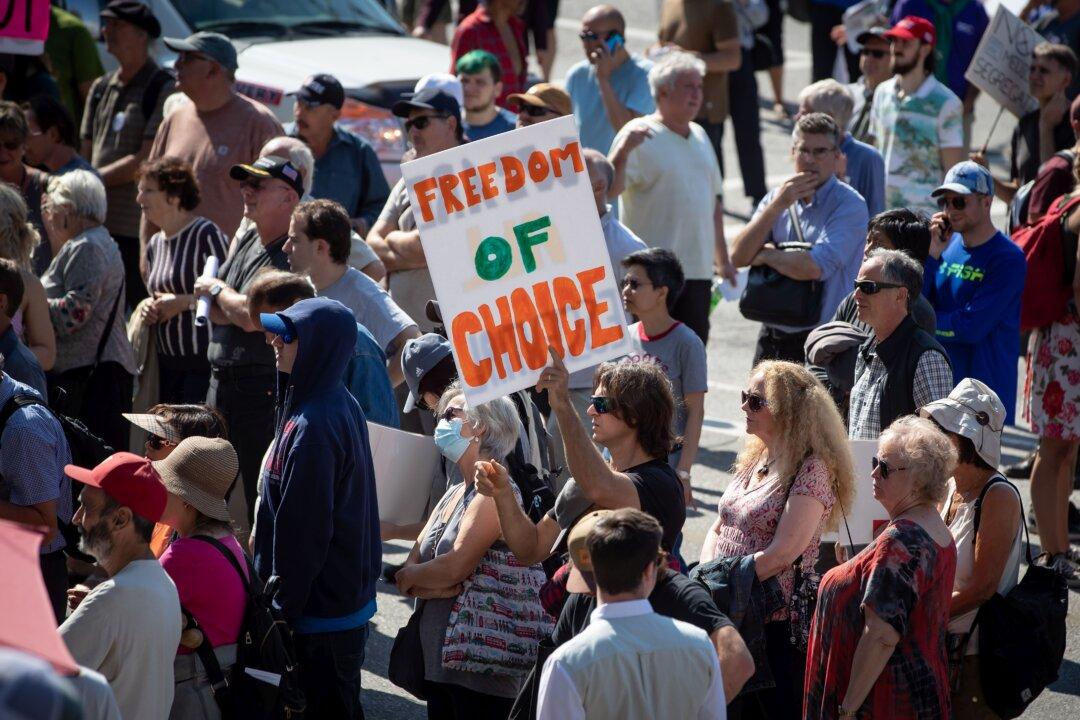A court challenge against the B.C. government over vaccine passports mandated during the COVID-19 pandemic is underway.
The challenge was brought forward by the Canadian Constitution Federation (CCF), focusing on two women and a teenage girl who say they were negatively impacted by the B.C. government’s passport protocol. The CCF lost the case in September 2022 but is appealing the court decision.





